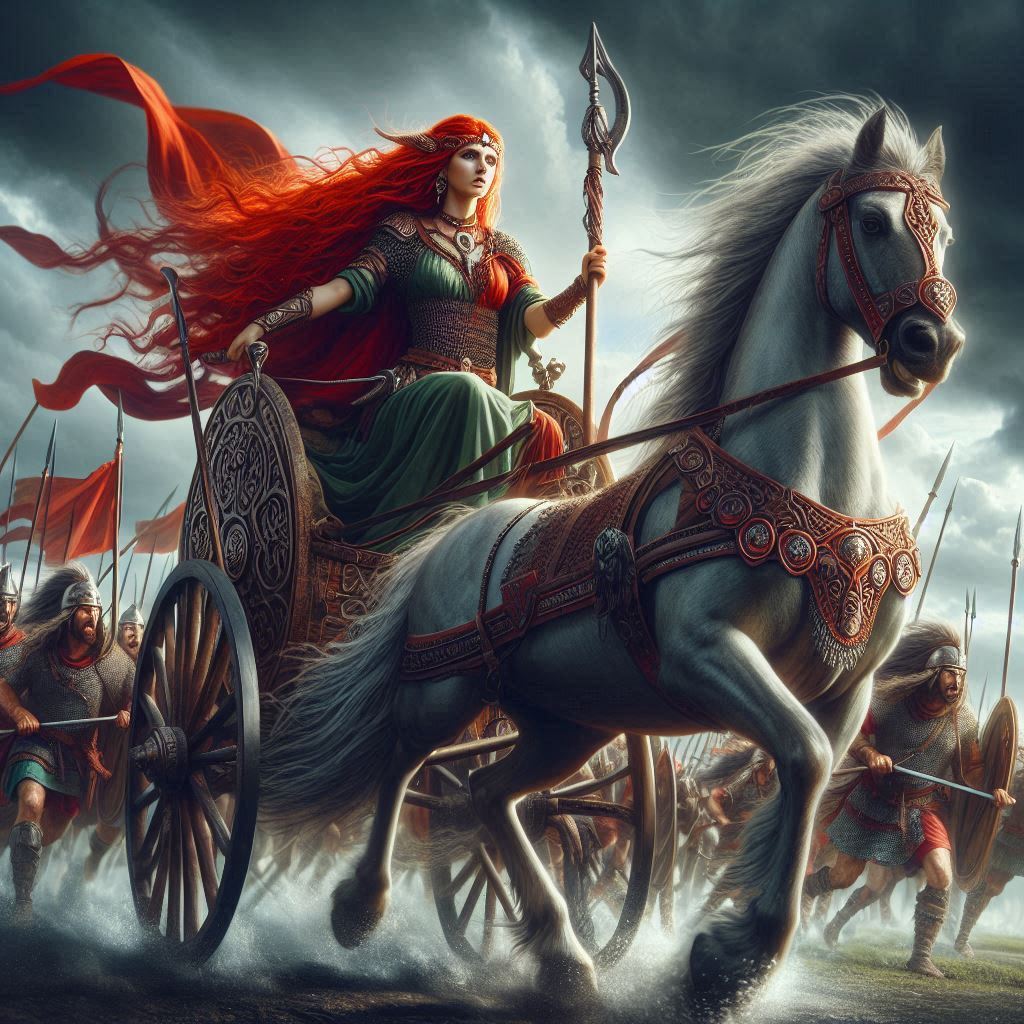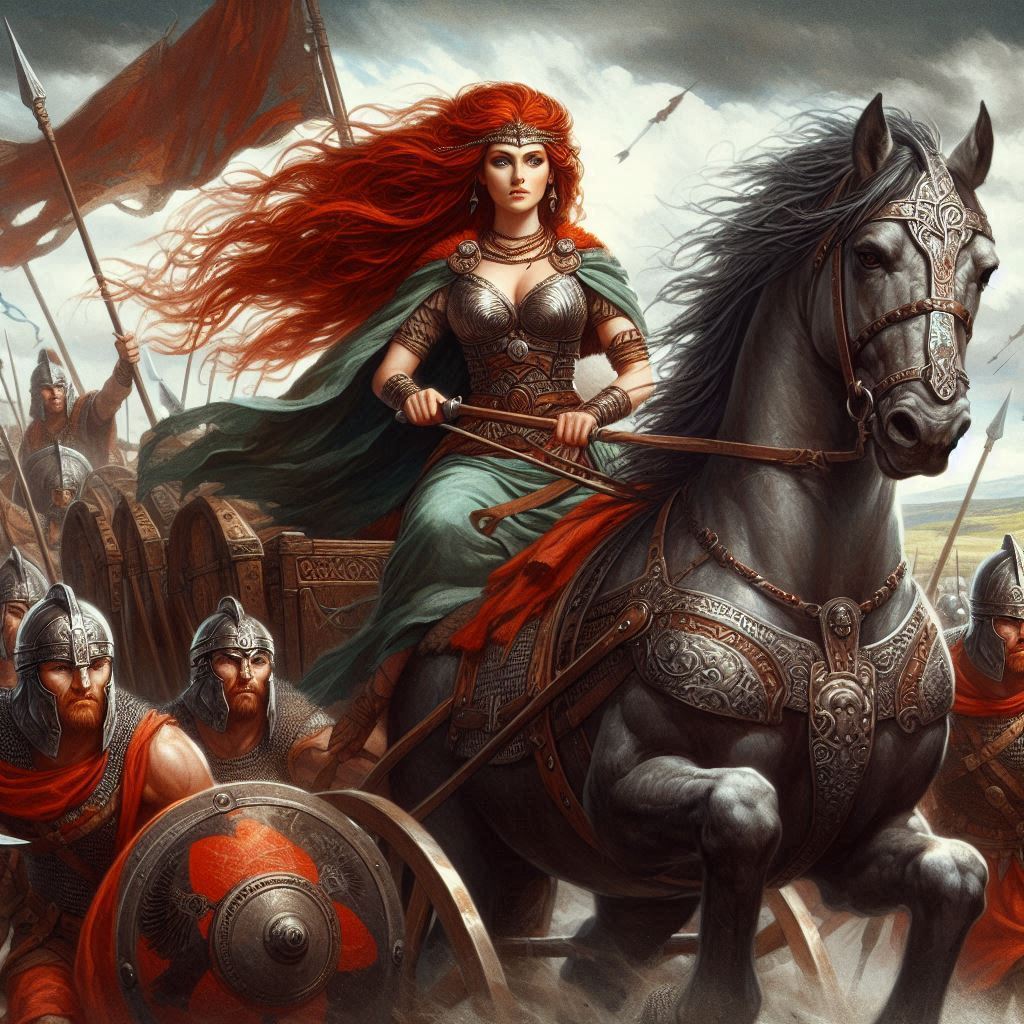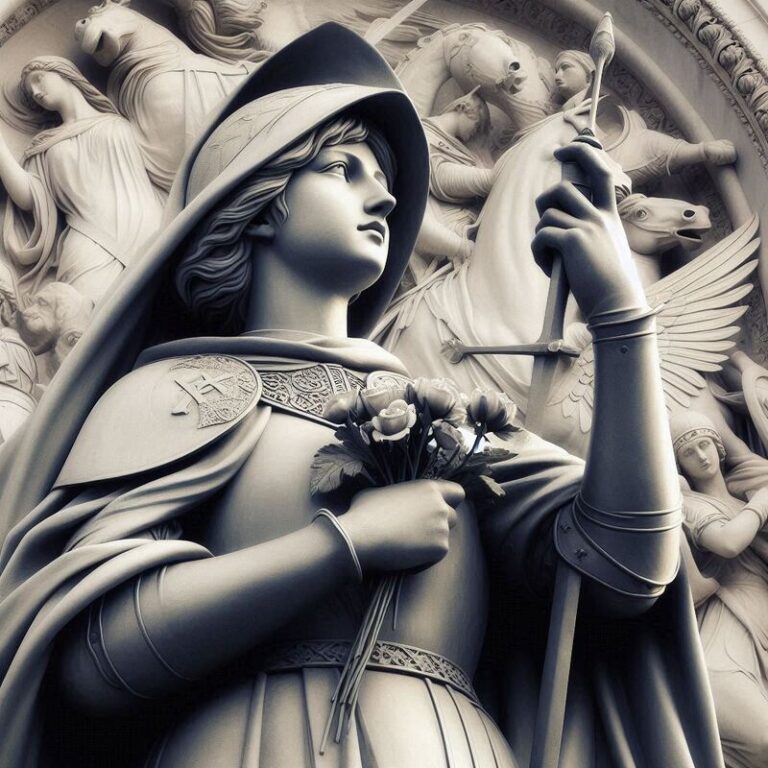The Indomitable Spirit of Queen Boudica

The Indomitable Spirit of Queen Boudica
Queen Boudica, the legendary warrior queen of the Iceni tribe, remains an enduring symbol of resistance against oppression and a beacon of national pride. Living during the 1st century AD in what is now modern-day England, Boudica led a formidable uprising against the occupying Roman forces. Her story is one of immense courage, unyielding determination, and the relentless pursuit of freedom. This article delves into the life of Queen Boudica, examining the historical context of her rebellion, her extraordinary leadership, and her lasting legacy.
The Historical Context
The Indomitable Spirit of Queen Boudica
To understand the significance of Boudica’s revolt, it is essential to grasp the broader historical context of Roman Britain. The Romans began their conquest of Britain in AD 43 under Emperor Claudius, gradually bringing much of the island under Roman control. The Iceni tribe, initially a client kingdom under the rule of King Prasutagus, maintained a degree of autonomy. However, this precarious peace was shattered upon Prasutagus’s death.
Prasutagus had sought to safeguard his kingdom by bequeathing his wealth to both his daughters and the Roman Emperor. Contrary to his intentions, the Romans viewed this as an opportunity to annex the Iceni territory fully. The Roman authorities confiscated the land, flogged Boudica, and violated her daughters. This brutal treatment ignited a fierce and widespread rebellion, with Boudica emerging as its undisputed leader.
The Rise of a Warrior Queen

The Indomitable Spirit of Queen Boudica
Boudica’s rise to prominence as the leader of the revolt was fueled by her unbreakable spirit and deep-seated desire for justice. Described by the Roman historian Tacitus as a tall woman with a piercing gaze and a commanding presence, Boudica possessed both the physical and mental attributes of a formidable leader. Her charisma and determination galvanized the Iceni and neighboring tribes, uniting them against a common enemy.
Boudica’s speeches, as recounted by ancient historians, emphasized the themes of freedom, vengeance, and resistance against tyranny. She invoked the honor of her people and the sacred duty to protect their land and families. This rhetoric not only inspired her warriors but also instilled a sense of purpose and unity among the disparate tribal factions.
The Revolt Against Rome

The Indomitable Spirit of Queen Boudica
The revolt began in AD 60 or 61, while the Roman governor Gaius Suetonius Paulinus was campaigning in Wales. Seizing the opportunity, Boudica led her forces to a series of dramatic and devastating victories. The first major target was Camulodunum (modern Colchester), a Roman colonia and symbol of Roman authority. The city was sacked and burned, its inhabitants slaughtered.
Emboldened by this success, Boudica’s army advanced to Londinium (modern London) and Verulamium (modern St Albans), both of which met similar fates. The Roman historian Dio Cassius estimated that over 70,000 Roman citizens and allies were killed in these attacks. Boudica’s forces were relentless, driven by a fierce desire to reclaim their land and dignity from the Roman oppressors.
The Battle of Watling Street

The Indomitable Spirit of Queen Boudica
The climax of Boudica’s rebellion came at the Battle of Watling Street. The Roman governor Suetonius Paulinus, having returned from Wales, regrouped his forces to confront the rebel army. Despite being heavily outnumbered, the Roman legions employed superior tactics and discipline to devastating effect. Boudica’s forces, lacking the same level of military training and cohesion, were ultimately defeated in a decisive and brutal battle.
The exact fate of Boudica remains uncertain. Some sources suggest she took her own life to avoid capture, while others imply she fell ill and died shortly after the battle. Regardless of her end, Boudica’s rebellion, though ultimately unsuccessful, inflicted significant damage on the Roman occupiers and left a lasting mark on the history of Britain.
Boudica’s Legacy
The Indomitable Spirit of Queen Boudica
The legacy of Queen Boudica is multifaceted, extending far beyond her immediate historical context. In the centuries following her revolt, Boudica became a powerful symbol of resistance and national pride. Her story has been retold in various forms, from ancient chronicles to modern literature, music, and film. Boudica’s legacy serves as a reminder of the enduring human spirit in the face of oppression.
During the Renaissance, interest in Boudica’s story was revived, and she was celebrated as a heroine of British history. The Victorian era, in particular, saw a resurgence of fascination with Boudica, coinciding with the expansion of the British Empire. She was hailed as a proto-feminist icon and a symbol of Britain’s indomitable spirit. Statues of Boudica, such as the one near the Houses of Parliament in London, were erected to honor her memory and her contribution to British heritage.
Boudica in Modern Culture

The Indomitable Spirit of Queen Boudica
In contemporary culture, Boudica’s story continues to resonate. She is often depicted in novels, films, and television series as a fierce and independent warrior, embodying the struggle for justice and freedom. Her image has been embraced by various movements advocating for women’s rights and empowerment, emphasizing her role as a strong female leader who stood up against overwhelming odds.
Boudica’s tale also serves as a powerful educational tool, highlighting the complexities of Roman-British interactions and the impact of colonialism. Her story encourages critical reflection on the nature of resistance, the costs of rebellion, and the enduring quest for autonomy and self-determination.
Conclusion
The indomitable spirit of Queen Boudica is a testament to the power of courage, resilience, and the unyielding desire for freedom. Her rebellion against the Roman Empire, though ultimately unsuccessful, demonstrated the strength and determination of a people united against oppression. Boudica’s legacy endures as a symbol of resistance, inspiring generations to stand up for justice and fight against tyranny. Her story, steeped in both history and legend, continues to captivate and inspire, reminding us of the enduring power of the human spirit to challenge and overcome adversity.


